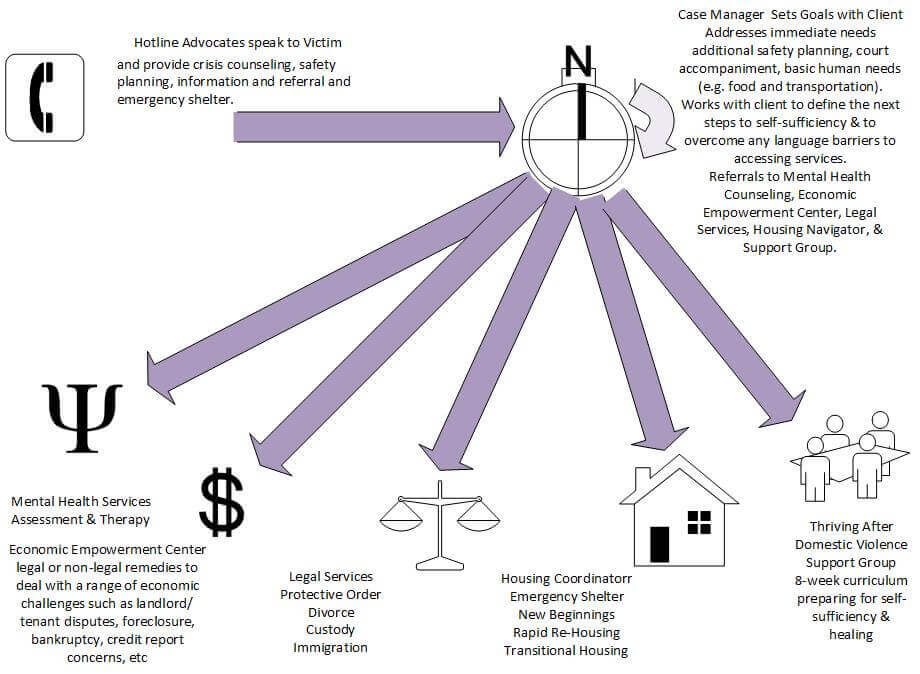In an effort to support the victims of domestic violence throughout their journey to self-sufficiency, MSCFV uses a holistic case management program model in which highly trained MSCFV advocates and counselors work with domestic violence victims from their initial contact with the agency (typically at a point of crisis), through their transition to survivor, and ends with self-sufficiency. Programs and supports are offered according to the needs and wants of each specific client.





